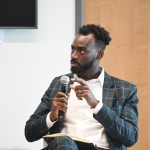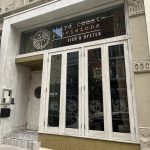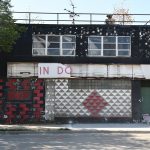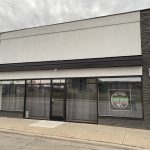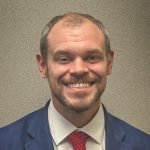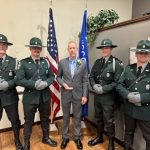COVID-19 Antibody Study Seeks Volunteers of Color
Study seeks to assess levels of immunity and extent of COVID-19 infection in local communities.
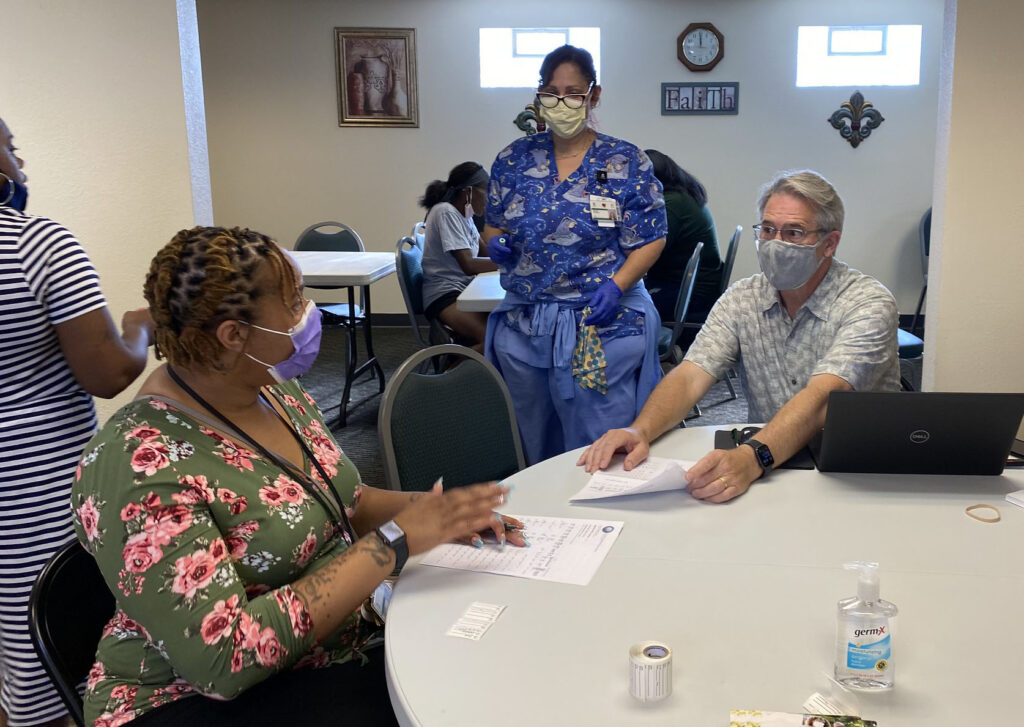
Dr. John Meurer speaks with a participant in the Fight COVID MKE antibody study. Photo provided by Dr. Dessie Levy/NNS.
Researchers from the Medical College of Wisconsin are seeking participants for a study of COVID-19 antibodies with the hopes of finding out how the coronavirus has affected Milwaukee County residents.
In particular, the study aims to engage with Black and brown communities because of their higher rates of chronic disease, such as diabetes, and other health concerns.
“What are the patterns of (social determinants), antibody levels and survey results that are associated with some people doing really well, while other people end up in the hospital?” said Dr. John Meurer, a professor at MCW and co-principal investigator of the Fight COVID MKE Project. “Why is it that some are so resilient and others so relatively frail?
Participants must be a Milwaukee County resident aged 18 years or older. Those enrolled in BadgerCare Plus or Medicaid programs are encouraged to join. The study has enrolled 3,500 participants so far and hopes to reach 5,000 by the end of June, Meurer said. Participants can also receive a gift card.
In Wisconsin, COVID-19 has particularly affected communities of color: According to the Department of Health Services, the Latinx community has the highest case rate among all demographics; the Black community has the highest hospitalization rate; and the Native American community has the highest death rate.
Priscilla Wallace, program director with Fight COVID MKE, said the project could prove useful to communities, helping participants assess their risk for infection or reinfection and allowing them to make safer choices and protect themselves.
Results from the study also will go to public health organizations, such as the National Institutes for Health, that plan to analyze the effects of COVID-19 on communities. Data shared with the National Institutes of Health will not include names or addresses of participants.
Wallace said many participants are referred into the program by other medical centers. Federally qualified health centers, such as Progressive Community Health Centers and Sixteenth Street Community Health Centers, and locations with major health systems direct participants and can even schedule the antibody test with them.
The effort has also enlisted the aid of local churches. When COVID-19 hampered the ability of community-based organizations to gather residents, faith leaders were still able to connect with people in their neighborhoods.
“The community-based organizations were hit hard when it came to COVID,” Wallace said. “But the connection remained with our faith-based partners where the ministers and pastors still had the ear of their congregation. They’re also a trusted pillar within the community.”
Levy, who also serves as a member of the General Baptist State Convention of Wisconsin, works with clergy on the North Side and South Side to spread the word. For example, by partnering recently with La Hayes Seventh-Day Adventist Church on the city’s South Side, researchers were able to meet 37 participants for the study.
The messaging centers around belief, Levy said. She tries to reach the faithful by discussing her view on scripture and how the study can benefit the community.
“If God himself, Jesus Christ and the holy spirit can embrace research, finding those that are lost, finding answers to problems that can’t be solved—who are we as believers to not do the same?” Levy said.
Levy said the study was an opportunity for people of color to find out how to better protect themselves and their community.
“If everyone around the globe is saying: ‘What is COVID doing to Black and brown people that it hasn’t done to others,’ that is a wake-up call,” Levy said. “This is our time. It’s a call for action, and we’ll be remiss if we don’t get involved.”
To get involved
Go to fightcovidmilwaukee.org, call 414-955-2684 or email fcm@mcw.edu for more information.
Fight COVID MKE antibody study seeks Black and Latinx volunteers was originally published by the Milwaukee Neighborhood News Service.
More about the Coronavirus Pandemic
- MHD Release: Milwaukee Health Department Launches COVID-19 Wastewater Testing Dashboard - City of Milwaukee Health Department - Jan 23rd, 2024
- Milwaukee County Announces New Policies Related to COVID-19 Pandemic - County Executive David Crowley - May 9th, 2023
- DHS Details End of Emergency COVID-19 Response - Wisconsin Department of Health Services - Apr 26th, 2023
- Milwaukee Health Department Announces Upcoming Changes to COVID-19 Services - City of Milwaukee Health Department - Mar 17th, 2023
- Fitzgerald Applauds Passage of COVID-19 Origin Act - U.S. Rep. Scott Fitzgerald - Mar 10th, 2023
- DHS Expands Free COVID-19 Testing Program - Wisconsin Department of Health Services - Feb 10th, 2023
- MKE County: COVID-19 Hospitalizations Rising - Graham Kilmer - Jan 16th, 2023
- Not Enough Getting Bivalent Booster Shots, State Health Officials Warn - Gaby Vinick - Dec 26th, 2022
- Nearly All Wisconsinites Age 6 Months and Older Now Eligible for Updated COVID-19 Vaccine - Wisconsin Department of Health Services - Dec 15th, 2022
- City of Milwaukee Bi-Weekly COVID-19 Update - City of Milwaukee Health Department - Dec 9th, 2022
Read more about Coronavirus Pandemic here


